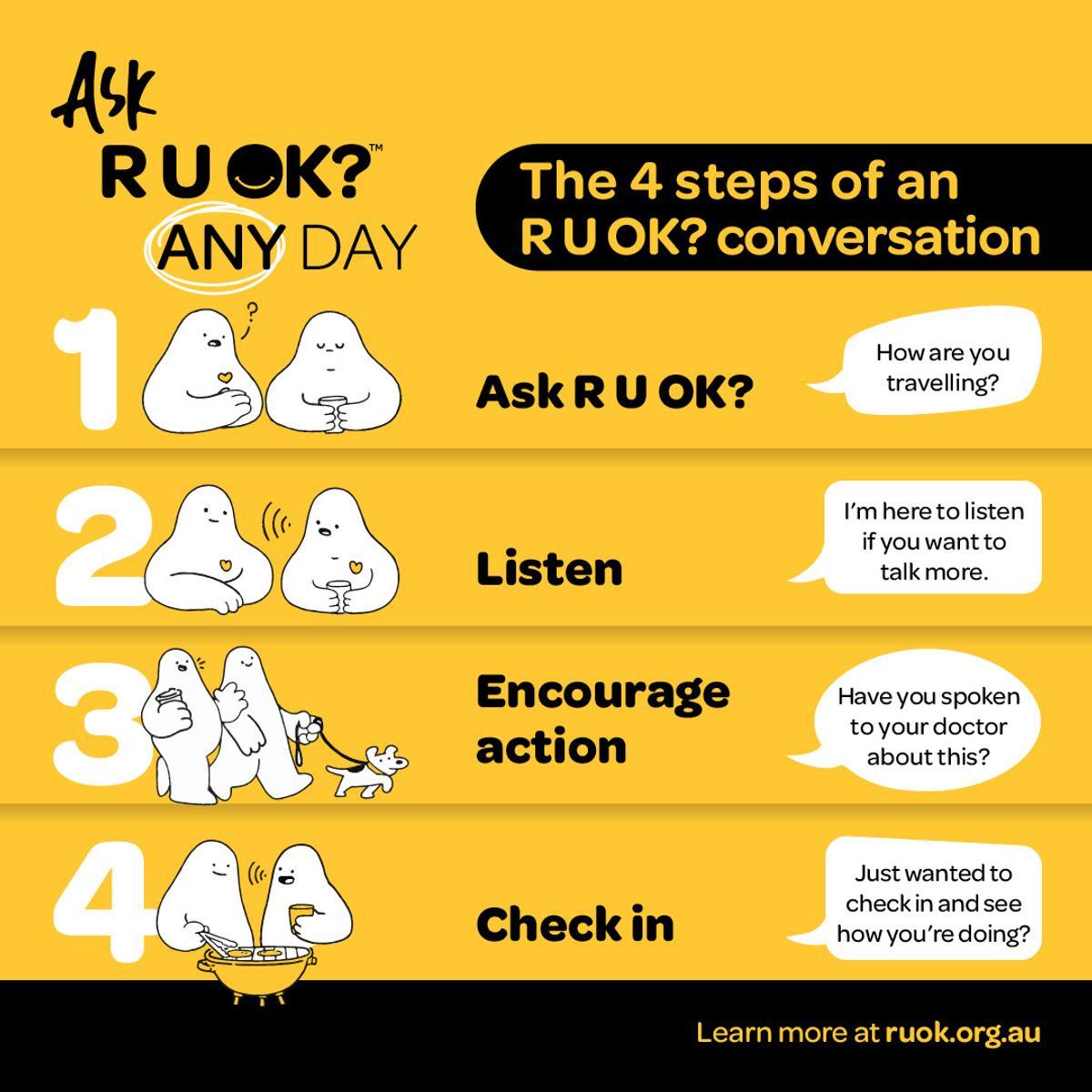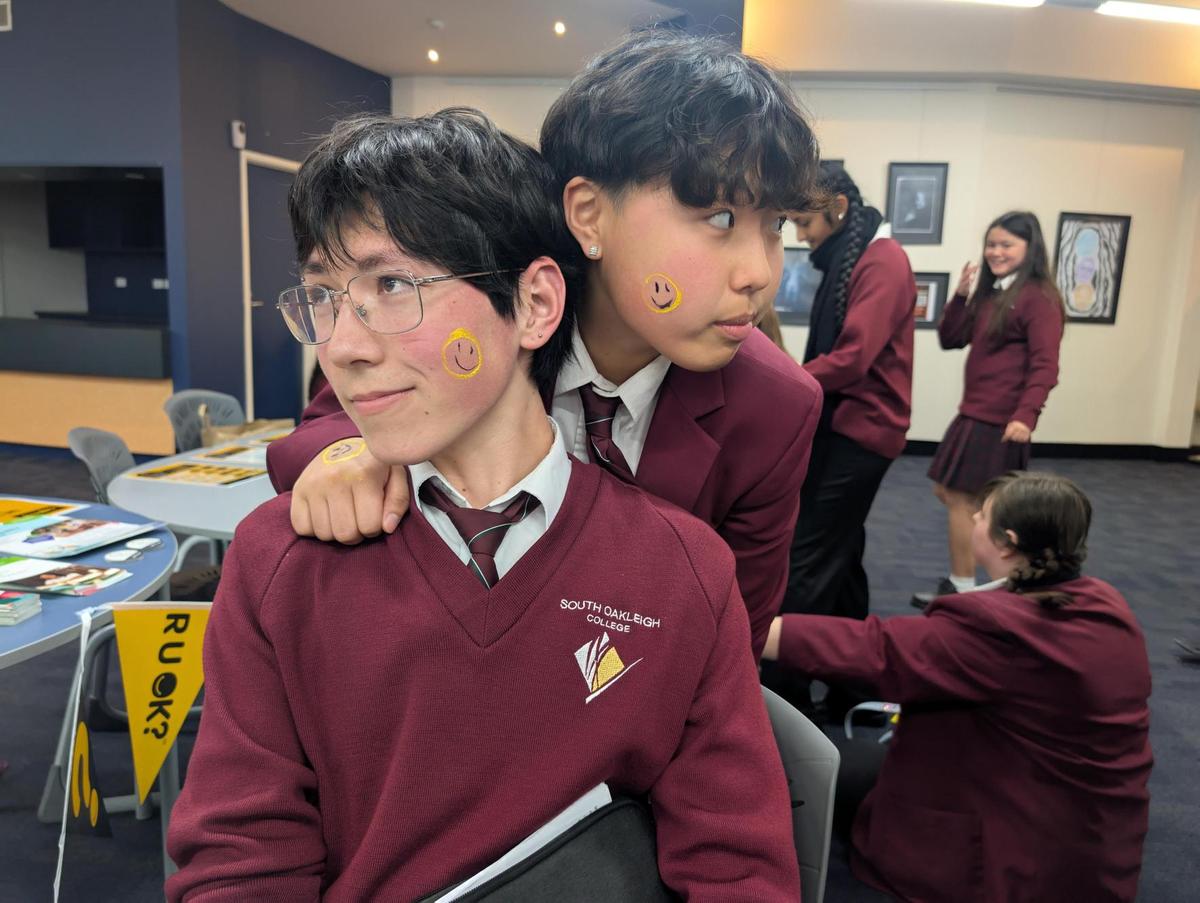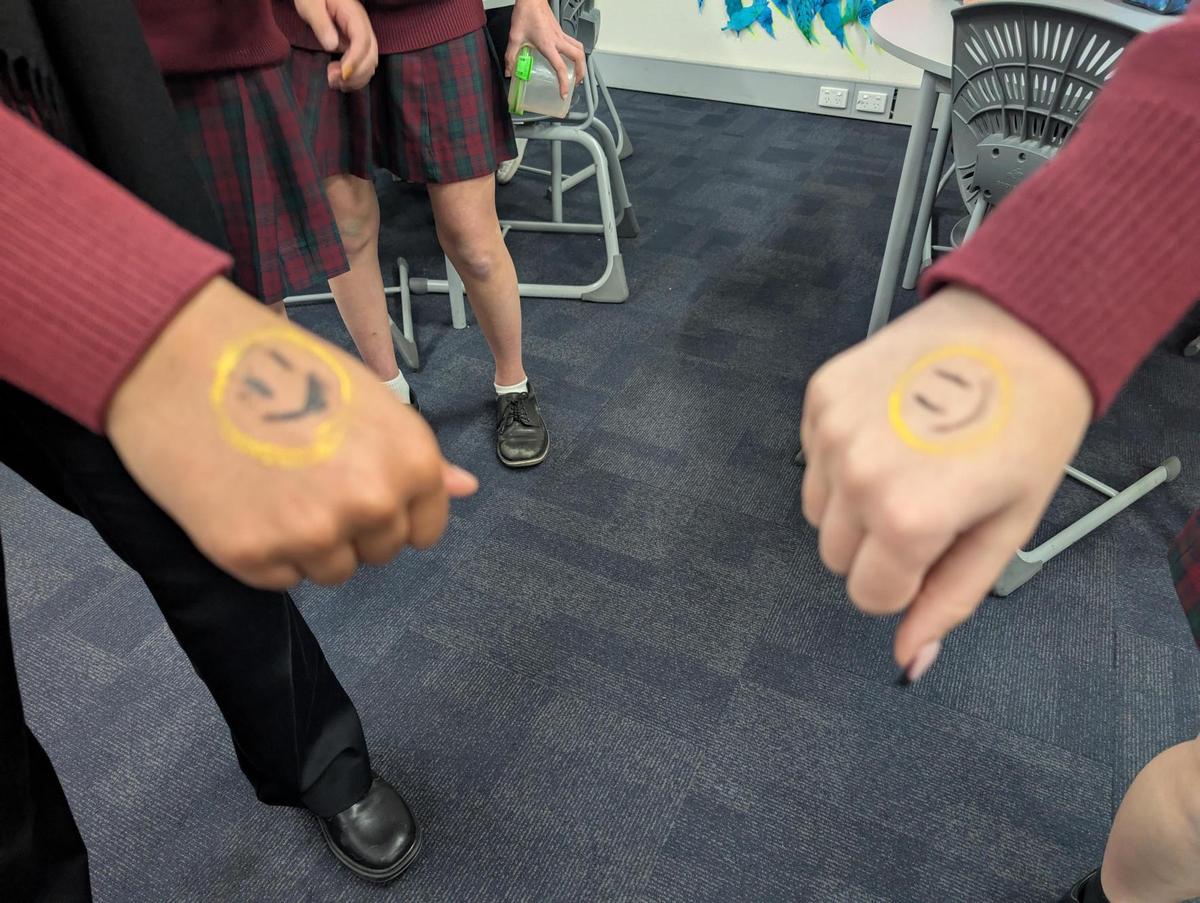Wellbeing

End Of Term 3:
Wellbeing Report
As we wrap up Term 3, it’s a good time to look back on what has been a busy and rewarding few months for the Wellbeing Team. With spring finally here, the days are getting brighter and warmer, which feels like the perfect lead-in to what will be a very exciting Term 4.
This term we’ve had lots happening across the school. One of the highlights was R U OK? Day, where students and staff came together to focus on the importance of checking in with each other. There were activities and conversations across the day, and it was great to see so many people stopping to ask the simple but powerful question: Are you OK?
Monday Club has continued to be a favourite for many of our junior students. Every Monday lunchtime, C8 has been filled with games like Jenga and cards, crochet, colouring, and of course time with Bella, our wellbeing dog. It’s been a relaxed space for students to hang out, make new friends, or just enjoy some quiet time in a safe, welcoming environment.
We’ve also run a number of small group programs focusing on confidence, resilience, and healthy ways to manage stress. These programs have given students practical tools to use both in and out of the classroom. Alongside this, our team has continued to meet with students one-on-one, working closely with families and staff to make sure young people feel supported.
Looking ahead, Term 4 is always a big one. Exams and final assessments are around the corner, and for our Year 12s it will be their last term of high school. This can bring a mix of excitement, pressure and uncertainty, and we’ll be here to support students through all of it.
Tips for the holidaysThe school holidays are a great opportunity for students to recharge before Term 4 begins. Families can support their young person’s mental health and gently prepare them for exams by:
- Encouraging rest and downtime – holidays should still feel like a break.
- Sticking to a routine – keeping sleep and meal times regular helps with energy and focus.
- Planning short, realistic study sessions – a little review each day can keep knowledge fresh without overwhelming students.
- Balancing work and play – make time for exercise, social activities, and hobbies.
- Creating a calm study space – setting up a tidy, distraction-free area at home can help students feel ready for revision when Term 4 starts.
- Keeping communication open – talk with your young person about how they’re feeling, and reassure them that doing their best is enough.
With the right balance of rest and gentle preparation, Term 4 can be a positive and successful finish to the school year.
Elizabeth Smith
Director of Student Wellbeing
Ask R U OK? Any Day
South Oakleigh College celebrated R U OK? Day on 11 Sept 2025. The Wellbeing Team set up several lunchtime activities and music at the foyer, raising awareness and showing support to the initiative. Staff and students wore something yellow on the day as well.
R U Ok? Day is a national day of action held annually to encourage and empower all people to regularly and meaningfully ask ‘are you ok?’ as the people around us go through life’s ups and downs every day. Asking someone if they’re ok and demonstrating effective listening skills can help people feel valued, supported and connected, and also help them cope with stressful times.
If you feel something is not quite right with someone, chances are that they might need a bit of extra support from the people around them. They might be acting a bit differently, seem to have a lot on their plate, or simply aren’t themselves. Don’t ignore those signs but instead take some time to start a conversation.
When you need to access information to support someone, you can turn to many people and places in your community including schools. Encouraging people to seek help early will enable them to manage the situation and potentially stop the problem from getting bigger.
R U Ok?
The above information has been sourced from R U OK? Website. Further information and tips to start conversations please visit http://www.ruok.org.au/how-to-ask
Penny Hsiao
Health Promotion Nurse
Study Skills for Year 11 and 12 – Getting into a Routine
As we gear up to enter Term 4, many of our Year 11s and 12s are shifting into high gear in preparation for their final SACs and their exams. However, some might not have quite worked out a study routine that they are able to stick to. Here are some tips for those trying to nail down a routine:
- Try not to put either too much or too little into your routine. You should have structure without it being overwhelming
- Work backwards when planning your routine – first map out your classes, then mealtimes and bedtimes, then extracurricular activities (work, sport, social catchups), and then finally fill the gaps with study time. This will make you more likely to stick to your routine since you’ve already allocated time to everything else
- When you study, block your access to social media using apps like Opal, Freedom, and Forest, to keep you on task
- Incorporate breaks into your study time. Try taking a ten-minute break for every fifty minutes of study, then a twenty-minute break after doing two fifty-minute study blocks
However, it’s all well and good to have a study routine, but what if you can’t make yourself study in the first place? If this is you, you might be dealing with procrastination. Everyone procrastinates in some part of their live, and everyone does it for different reasons. Here are some of these common reasons people procrastinate and potential solutions:
- You’re too tired – remember to take regular study breaks, prioritise getting enough sleep, and make time to recharge your social battery with friends
- You’re feeling overwhelmed by the amount of work – break down your study tasks into small steps, and focus on just making a start rather than worrying about getting everything done at once
- You’re worried about making mistakes or failing – remember that done is better than perfect, and remember to ask your teachers questions about what you don’t understand
- You just aren’t motivated – use the ten-minute rule. Just study for ten minutes, then either stop or keep going when the time’s up (you’ll often find that you can keep going!). Don’t forget to reward yourself after studying
If you’re a Year 11 or 12 student and want support with building up your study skills, come to Study Skills 101 in A2 at lunchtimes on Tuesday and Thursday of Week 9!
Imogen Weisser
Student Wellbeing Officer







